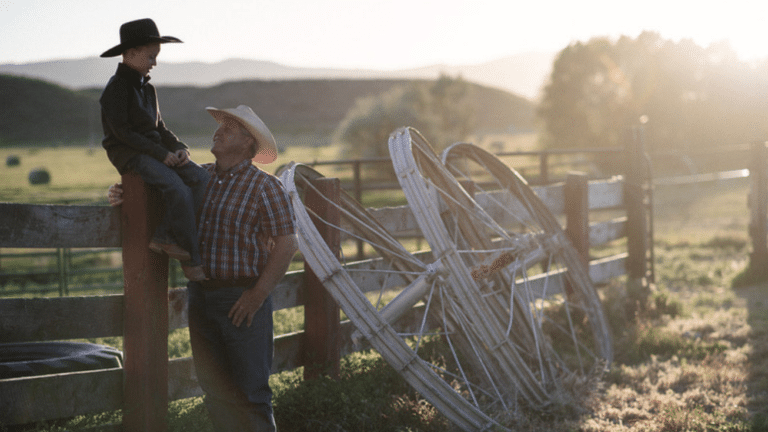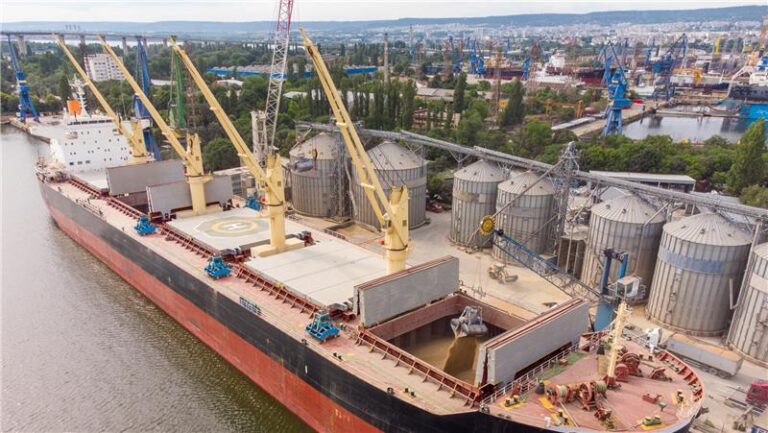Recreational Land Loans: How to Finance Hunting Land
Buying or leasing farmland for hunting use provides ample opportunity for financial gains—and recreational land loans can help you do it.
The unpredictable nature of the agriculture industry has prompted more farmers and ranchers over the years to seek passive income sources to build long-term financial security. Leasing unused farmland for hunting or recreational use has become an attractive option for diversifying operations and bringing in additional revenue that isn’t tied to fluctuating commodity prices. By leveraging a recreational land loan and leasing your land for hunting, you can take advantage of seasonal opportunities and bring more financial stability to your operation.
In addition to stable returns, recreational land ownership is a responsible investment that can benefit families, communities, and the environment.
Some of the ways that farmers are using recreational land loans for hunting land include:
- Purchasing new farmland for personal or public hunting use;
- Dedicating unused or available recreational farmland to a conservation easement program; or
- Leasing a portion of existing farmland for seasonal or year-round hunting or recreational use.
If you’re considering a recreational land loan, it’s important to have a solid understanding of what to look for in the land you’d like to purchase and a lender to support your goals. When you partner with a lender who specializes in recreational land loans, they can help you navigate the benefits and challenges of land ownership and help you make the decision that is best for your operation.
Top Four Benefits of Land Ownership Through Recreational Land Loans
A recreational land loan yields four central benefits that serve to strengthen the farmer’s portfolio while also supporting a thriving natural environment.
1. Leasing and ROI Opportunities
In addition to being able to use your farmland for agricultural use, there is also ample opportunity for leasing the land for recreational purposes such as hunting. Specifically, leasing farmland that isn’t being used to grow crops and repurposing it for responsible hunting or recreational land use is a good way for farmers to diversify their income sources and hedge against market volatility.
2. Steady Investment
Unlike some other investments, investing in farmland for both agricultural and recreational use is a relatively stable investment due to the general appreciation of land values over time. It also provides diversification in the farmer’s portfolio that hedges against fluctuating commodity prices and high-risk investments.
While data for recreational land values is less documented, the average rate of return for cropland ownership in the U.S. was 3.52 percent over the last decade. More recently, these land values have increased even more with growing popularity and finite supply. For instance, there was a 7.8 percent increase in cropland values in 2020 compared to 2019 according to the USDA.
It is also important to acknowledge that farmland values vary by region. For example, the states with the highest increases in cropland values from 2020 to 2021 were:
- Kansas – 13.9 percent
- Nebraska – 13.8 percent
- South Dakota – 11.9 percent
On the other hand, the states with the lowest increases in cropland values from 2020-2021 included:
- Mississippi – 1.6 percent
- Florida – 1.5 percent
- Alabama – 1.4 percent
While the increases in land values vary by state, U.S. farmland values as a whole show steady appreciation–even amid the volatile economic climate of 2020. Therefore, investing in farmland for both agricultural and recreational use provides a stable asset that can withstand unpredictable market fluctuation.
3. Wildlife and Land Conservation
Leasing farmland for recreational use is a good way to engage in environmental stewardship by protecting wildlife and the environment by caring for the land and preventing development. For instance, conservation easements can provide an additional income source while protecting essential and finite habitats.
In addition to preserving the land, practicing wildlife management encourages the presence of wildlife on the land and can even increase its value. Some wildlife management techniques to increase the presence of wildlife include:
- Thinning and burning timberlands;
- Creating field borders or buffer strips around crops;
- Creating brush piles;
- Planting fruit trees and shrubs; and
- Providing access to water sources.
By protecting wildlife and supporting a thriving environment, recreational landowners are paving the way for current and future enjoyment by their families, friends, and communities.
3. Long-Term and Versatile Use
Finally, owning hunting land allows for long-term use that spans generations. With proper succession planning, this land can be passed down to future generations. Furthermore, depending on usage, it is an investment that requires little upkeep and maintenance.
Factors to Consider When Buying Land with a Recreational Land Loan
Before buying farmland for hunting or recreational use, it is important to understand some of the variables that can impact your purchase.
Location
First and foremost, it is crucial to consider the location of the hunting property before purchase. Land values can vary greatly by region, so keeping that in mind is important in long-term financial planning as land values can affect lease values. For instance, the average cropland value in the Pacific Subregion was $7,240 per acre in 2020 compared to $1,930 per acre in the Southern Plains. Furthermore, if the property will be partially used for agricultural purposes, water access is also a big factor to consider when deciding on a land purchase.
Zoning Laws
Zoning laws dictate what the land can be used for, so it is important to understand any restrictions before purchasing. Some zoning classifications include recreational, commercial, and agricultural. Before purchasing land, it is imperative for individuals to know how they plan to use the land.
Property Easements
Property easements provide groups such as townships and utility companies the authorization to enter or use part of one’s property. Therefore, it is important to be aware of any existing easements before purchasing the land.
How to Finance Hunting Land with Recreational Land Loans
Once you’ve found the perfect property, it’s time to find the perfect lender. Whether you’re a farmer interested in expanding your property for recreational use or leasing existing farmland to responsible hunters, securing flexible, upfront capital to invest in your land’s value is a key part of its success. Here are a few things to look for when searching for the right lender for your recreational land loan.
Industry Knowledge
First, it is crucial for a land lender to possess strong knowledge of farmland and how to finance hunting land because this kind of investment varies significantly from other types of assets. From understanding property valuation to understanding the financial needs of rural landowners, the right lender will specialize in agricultural land lending and leverage their knowledge to develop optimized financing solutions.
Flexible Financial Structures
Furthermore, it is critical for a lender to understand the importance of providing flexible financial structures that meet the varying needs of rural landowners. The best lender will understand that everyone’s needs are unique and that the needs of individual landowners vary over time. For instance, lenders that offer long-term structures understand the importance of setting their borrowers up for higher returns early on in their investment journey. With this in mind, it is crucial to find a lender that develops adaptive financing that can evolve with changing needs.
Long-Term Relationships
Finally, the right lender will work to develop and sustain long-term partnerships that evolve along with the landowner. By working closely with you through the loan lifetime, a strong lender will stay up to date on your evolving financial needs.
Partner with the Leading Recreational Land Loan Lender
With the needs of rural landowners in mind, AgAmerica fulfills the characteristics of a strong lender and supports farmers and ranchers as they embark on recreational land ownership. Through our singular focus on agricultural land lending, we gain a deeper understanding of the type of financing needed for rural land ownership to develop optimized financing solutions.
Furthermore, our flexible spectrum of land loans takes the needs of farmers into account by adapting to their evolving financial situations. With this in mind, we offer loans ranging from short-term facilities to 30-year term loans. This range of options provides farmers with the ability to find the loan that best suits their specific needs. Whether purchasing new land, refinancing, or expanding your recreational land tract, AgAmerica has a solution.
Here are just a few examples of how recreational landowners have partnered with AgAmerica to support their goals.
Recreational Landowner Refinances and Improves Financial Health
A rancher and recreational landowner in the Midwest faced financial challenges outside of their control was able to refinance their existing debt and exit bankruptcy with an $8.5MM land loan refinance. Through developing a unique understanding of their needs, AgAmerica developed a custom loan package to meet their unique needs.
Landowner Purchases Recreational Property with Accelerate Land Loan Program
A landowner was able to secure the remaining funds needed for the purchase of 3,500 acres of recreational land in New Mexico with AgAmerica’s Accelerate Land Loan Program. Through this streamlined program, AgAmerica was able to provide an expedited approval time and low payments. This ultimately provided the borrower with more opportunities to invest in land improvement going forward.
Explore how AgAmerica could help you in your journey of purchasing or enhancing your recreational land by exploring our agricultural and recreational land loans.






